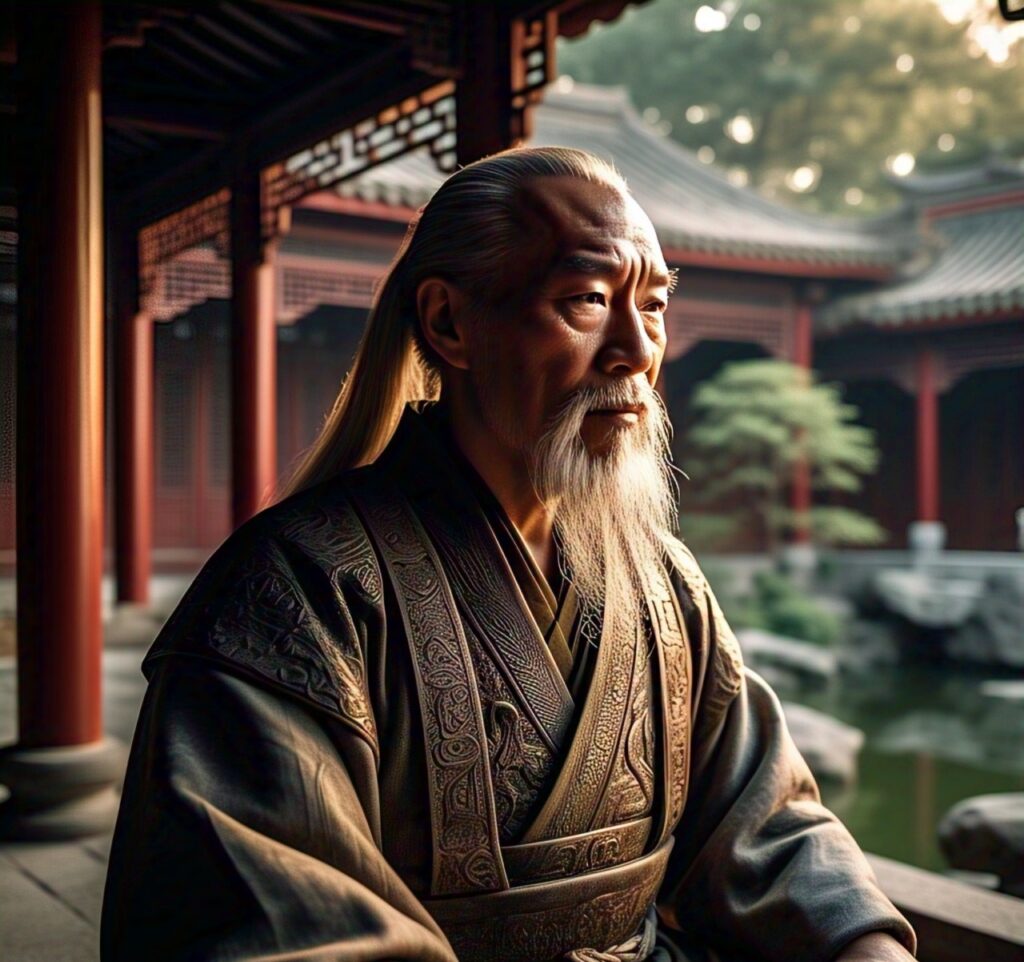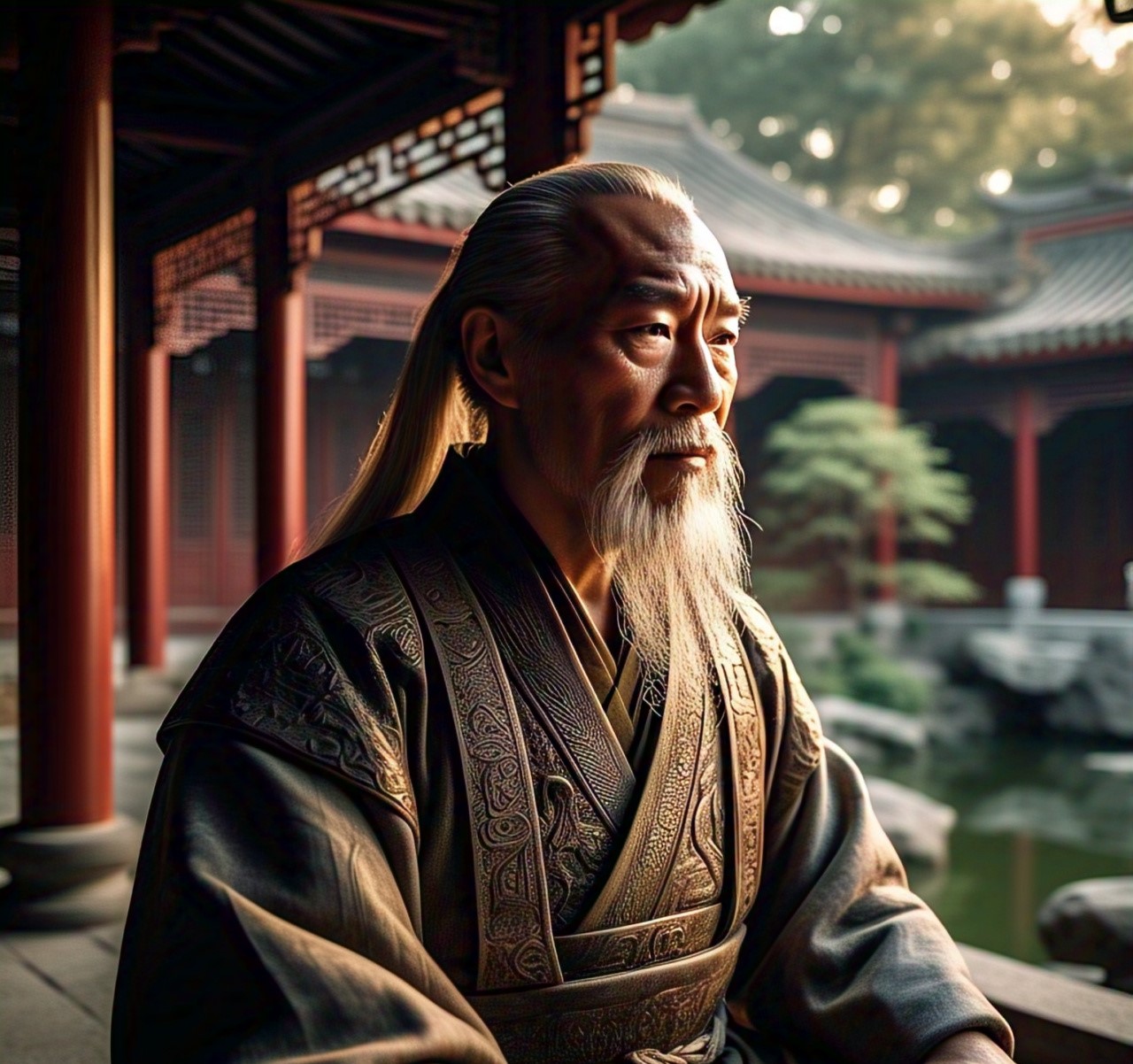Sun Tzu’s seminal The Art of War has influenced modern thinking for over 2,500 years. Its lessons on leadership, self awareness, and interpersonal dynamics are still relevant today. Tzu’s lessons were aimed at ancient Chinese warriors, but many are applicable to men today.
Many men miss out on growth opportunities because they are stubborn, proud of their confidence or lack self-reflection. They ignore or fail to recognize wisdom that is applicable to both business and relationships, as well as combat. Tzu’s writings are still relevant today for good reason. Men who heed his advice will become more flexible leaders, better partners and better stewards of development. Men can use this blueprint for success by letting go of rigid, outdated, ego-driven views about masculinity.
Sun Tzu’s Ancient Life Lessons For Men
Know Yourself and Your Weaknesses
Sun Tzu said, “If you know the enemy and know yourself, then you will not be afraid of the outcome of a thousand battles.” This focus on self-knowledge, which includes understanding your own nature, capabilities, and weaknesses, proves to be invaluable in every aspect of life. Many men are unable to reflect on their lives honestly, especially those in their forties, fifties, and beyond, and because of this go into integrity and despair. Men are taught to be confident and self-sufficient, and sometimes admitting weakness is contrary to this. Men are discouraged from being vulnerable when it comes to examining their own failings.
Men who don’t confront their flaws lose out on growth opportunities. Self-awareness is a prerequisite for men to succeed in careers that are not suited to their personality, and without introspection this can lead them into unfulfilling jobs and damaging relationships. Men can learn to curb their harmful behavior if they recognized earlier that they tend to be domineering or angry. From the start it is not easy to be honest about your weaknesses, but those that are successful in doing so make better decisions professionally and personally.
Self-improvement and personal growth are based on knowing yourself and your weakness; it may seem counterintuitive, but focusing on your weaknesses can help you become more aware of yourself and lead to meaningful development. You can develop resilience, adaptability and a better understanding of yourself by embracing your weaknesses.
The cornerstone of any personal development is self-awareness. Self-awareness involves understanding your strengths, weaknesses, and areas of improvement. Knowing your weaknesses will help you identify areas where you need to improve and get support; this awareness is a powerful tool to help you set realistic goals and make informed decisions for your professional and personal pursuit.
Accepting your shortcomings does not mean you should dwell on them, or let them define you, but very obviously, it is important to acknowledge your weaknesses as opportunities for learning and growth, and you can charge forward by addressing your weaknesses by taking proactive measures, either through self-improvement or seeking help from others. As you overcome challenges, this proactive walk and journey will increase your confidence and empower you.
Consider the following strategies to cultivate your self-awareness:
Reflect on feedback
Reflect on the feedback you receive, whether from family, friends or colleagues, because this feedback and constructive criticism is a great way to gain valuable insight into the areas that you need to improve.
Self-assessment
Regularly assess yourself to identify any patterns or behaviors which may be holding your back, and you will continue to gain new perspectives by journaling, or asking a mentor or friend for their honest opinion.
Seek support
Ask for guidance or help when you need it. Seeking support, whether it is through mentorship, professional development, or counseling can be a valuable resource for addressing weaknesses.
Embrace growth mindset
By all means learn and build a growth-mindset that sees challenges as an opportunity for learning and improvement; it is this growth mindset that will help you overcome your weaknesses with determination and resilience.
Flexible and Adaptable are Key
On the battlefield where conditions are constantly changing, rigidity is not a good thing, and it is for this reason that Sun Tzu warns that no strategy will survive contact with an enemy, so we must therefore learn to reshuffle our strategies to suit changing circumstances. The same flexibility is essential for both business and personal matters, but social pressures can push men to adopt a martial mentality based on conquest, control, and adherence to designated roles, which is why sometimes it takes some men longer than necessary to realize the limitations of rigid structures, plans, and processes.
This is why adaptability is a key factor at work and at home, and we can learn and know when to pivot instead of steadfastly pushing forward in an unprofitable direction, and we learn to adjust our tactics to achieve work-life balance. Sun Tzu’s fluidity philosophy is a powerful tool for men who want to thrive in the chaos of work and become more attentive, sympathetic partners and parents.
Adaptability is the ability to adapt to changing conditions, circumstances or environments. Being flexible is a valuable skill in all industries and businesses, as every business and industry can be unpredictable.
Try new things to improve your ability to adapt and problem-solve under different circumstances.
When working on projects, implementing strategies or implementing new approaches to meet goals, being adaptable is important. You can show your adaptability and willingness to learn new skills.
Continue Reading: How To Improve Your Adaptability And Flexibility Skills

Perception and Perspective Shape our Reality
Sun Tzu emphasizes the importance of resisting deception, and that reality is in the eyes of the beholder. Sun Tzu stresses the importance of resisting deception and piercing incorrect perceptions which distort our understanding. Modern psychology confirms subjective experience is a major factor in what people “see.” This is heavily influenced by past traumas, assumptions, cognitive biases, and other factors. Research shows that men, despite their cultural reputation of stoicism, are more likely to act based on emotion than logic.
Anyone can reduce biased thinking by developing self-knowledge, emotional intelligence and a strong sense of self. Few men make this personal development a priority before they reach a midlife crisis. The men who develop a greater sense of self-awareness are able to navigate through their corporate and family roles with fewer painful mistakes. The perspective they develop is more nuanced and balanced, which leads to better decisions. It is often disastrous to misread situations and relationships, while rushing ahead with an overconfident but misplaced sense of confidence.
The age-old adage “pride goes before a fall” holds a timeless truth that transcends various aspects of human life, including personal development, professional success, and interpersonal relationships. This proverb serves as a cautionary reminder against the dangers of unchecked pride and overconfidence, which can lead to detrimental outcomes and hinder our growth and progress.
Pride, in its positive form, represents a healthy sense of self-worth, confidence, and achievement, but when pride becomes excessive and transforms into overconfidence, it can cloud judgment and lead to a false sense of invincibility. This type of pride often comes from an attachment to one’s abilities, achievements, or beliefs and can manifest as a dismissive attitude toward feedback, a reluctance to admit mistakes, and an overemphasis on past successes.
Continue Reading: Pride Goes Before A Fall: The Danger Of Overconfidence
Anger Clouds Judgment
When passions rise, reason takes off. Sun Tzu warns emotional outbursts can undermine sound decision making; this an excellent warning for men with a hot temper. Anger is still a major obstacle for many men, and it can be detrimental to their leadership abilities and relationships. There are maybe not so popular cultural norms that discourage vulnerability and make males less able to handle frustration, and this vulnerability is exacerbated by testosterone.
Even in old age, men still rely on anger as an emotional crutch; the results of rage are disastrous, both romantically and professionally. For those who are unable to understand that anger outbursts erode trust and influence, these costs sadly, sometimes become evident too late. Men can develop better relationships and unleash more accurate leadership skills by channeling their anger in a productive way rather than destructively.
Do you know that there are thousands of decisions we make every day? Average adults face a multitude of decisions every day, from what to eat, what to buy, where to shop, and what to post online, it is often difficult to make the right choice because of this. It’s not the overwhelming number of choices that are scary. It’s the possibility of making the wrong decision.
Do not let your anxiety level fool you into believing that it is the factor that will help you decide about risk. You may not be able to trust your feelings. Your thoughts will not be as logical if you feel more emotion than normal. To balance your emotional reactions, increase your rational thinking about the risk.
Continue Reading: Do Not Let Your Emotions Cloud Your Judgement
Trust and Loyalty Must be Earned
Sun Tzu understood that despite the fear instilling power of a commanding demeanor and stern manner (of a person or their manner serious and unrelenting, especially in the assertion of authority and exercise of discipline), true loyalty is based on mutual affection between individuals or leaders. To achieve this bond, you must go beyond strict discipline and daring feats (an achievement that requires great courage, skill, or strength) and instead use patience and compassion to build understanding, but too many men still hold on to the misguided belief that results and reputation are enough to motivate teams. They realize too late that respect is not something you can force on others, but rather comes from how they are treated.
After ignoring the fundamentals of relationships, we learn painful lessons in betrayed business trust and marriage, and by relying on status as a way to gain loyalty, we miss out on the chance to develop devotion organically. Early on, men who learn the lessons of The Art of War about empathy will understand that trust and affection are based on a consistent display of care for both partners, equals and subordinates.
Trust, loyalty and any relationship that is meaningful in a professional or personal context and space are built on trust and loyalty, even though we often think of it as being given for free, it’s important to realize that loyalty and trust must be earned by consistent actions and a genuine commitment. To build and maintain trust and loyalty, you need to have integrity and understand the responsibilities of these qualities.
Trust is the foundation of any strong relationship, and over time, trust is built through open communication, reliability and ethical behavior; it is not possible to demand or assume trust. Instead, it must be earned through interactions and experiences which validate your reliability and sincerity.
In the same way, loyalty is also a result of allegiance, support and understanding; it’s not a right, but rather a result of fulfilling promises, demonstrating empathy and displaying unwavering commitment. Loyalty requires reciprocity and mutual understanding.
You must follow these rules to earn loyalty and trust:
Consistency
Demonstrate integrity, reliability and transparency consistently in your words and actions. Over time, consistency builds trust and loyalty.
Communication
Communication that is open and honest is crucial to building trust. Inform others, listen attentively, and openly address concerns.
Accountability
Accept responsibility for the actions and decisions you make. Recognize mistakes and make amends when needed.
Empathy
Empathy and understanding of others’ experiences and perspectives is important. Empathy strengthens relationships and fosters trust.
Respect
Respect and dignity are the foundation of healthy relationships. Respect is the foundation of a healthy relationship and promotes mutual trust and loyalty, and this respect like I always tell my friends must be shown both in the presence and absence of all you claim to respect, and by showing transparency, reliability, empathy, and respect in our interactions with others, we can build strong, enduring relationships based on mutual trust and loyalty.
Read Also: Sigmund Freud’s Life Lessons Men Should Learn Early In Life
Read Also: Choose Your Hard: The Power of Making Difficult Choices
Read Also: You Can Not Work Smart If You Don’t Work Hard
Conclusion
Sun Tzu’s timeless wisdom, found in The Art of War, has much to offer men who are looking to live a more holistic life. Success can be determined by key mental disciplines such as self-control and self-awareness. Nurturing and building relationships, rather than displaying outward confidence, which unfortunately passes for masculinity, is also important.
These ancient lessons on emotional intelligence can help us become more flexible leaders, partners and stewards for our own development if we internalize them earlier in life. Sun Tzu’s blueprint can help men today overcome their egocentric attitudes and embrace growth and fulfillment.



